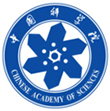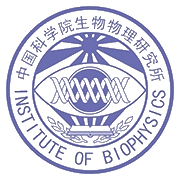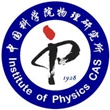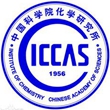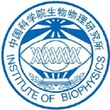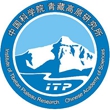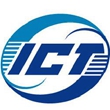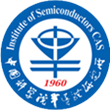Sessions 6:Technological Sciences
Zhonglin Wang
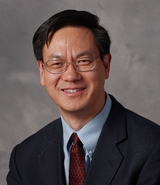
Character introduction
Dr. Zhong Lin (ZL) Wang is the Hightower Chair in Materials Science and Engineering and Regents' Professor at Georgia Tech,and Founding Director and Chief Scientist at Beijing Institute of Nanoenergy and Nanosystems. Dr. Wang pioneered the nanogenerators from fundamental principle to technological applications. His research on self-powered nanosystems has inspired the worldwide effort in academia and industry for studying energy for micro-nano-systems. He coined and pioneered the fields of piezotronics and piezo-phototronics for the third generation semiconductors. Wang is ranked No. 1 in Google Scholar public profiles in Nanotechnology & Nanoscience both in total citations and h-index impacts: http://www.webometrics.info/en/node/198. His google scholar citation is over 210,000 with an h-index of over 228.
Dr. Wang has received the Albert Einstein World Award of Science (2019); Diels-Planck lecture award (2019); ENI award in Energy Frontiers (2018); Global Nanoenergy Prize, The NANOSMAT Society, UK (2017); Distinguished Research Award, Pan Wen Yuan foundation (2017); Distinguished Scientist Award from (US) Southeastern Universities Research Association (2016); Thomas Router Citation Laureate in Physics (2015); World Technology Award (Materials) (2014); Distinguished Professor Award (Highest faculty honor at Georgia Tech) (2014); NANOSMAT prize (United Kingdom) (2014); The James C. McGroddy Prize in New Materials from American Physical Society (2014); MRS Medal from Materials Research Soci. (2011).
Dr. Wang was elected as a foreign member of the Chinese Academy of Sciences in 2009, member of European Academy of Sciences in 2002, academician of Academia of Sinica 2018, Foreign member of Korean Academy of Science and Technology 2019, International fellow of Canadian Academy of Engineering 2019; fellow of American Physical Society in 2005, fellow of AAAS in 2006, fellow of Materials Research Society in 2008, fellow of Microscopy Society of America in 2010, fellow of the World Innovation Foundation in 2002, fellow of Royal Society of Chemistry, and fellow of World Technology Network 2014. Dr. Wang is the founding editor and chief editor of an international journal Nano Energy, which now has an impact factor of 15.5. Details can be found at: http://www.nanoscience.gatech.edu
Dr. Wang has received the Albert Einstein World Award of Science (2019); Diels-Planck lecture award (2019); ENI award in Energy Frontiers (2018); Global Nanoenergy Prize, The NANOSMAT Society, UK (2017); Distinguished Research Award, Pan Wen Yuan foundation (2017); Distinguished Scientist Award from (US) Southeastern Universities Research Association (2016); Thomas Router Citation Laureate in Physics (2015); World Technology Award (Materials) (2014); Distinguished Professor Award (Highest faculty honor at Georgia Tech) (2014); NANOSMAT prize (United Kingdom) (2014); The James C. McGroddy Prize in New Materials from American Physical Society (2014); MRS Medal from Materials Research Soci. (2011).
Dr. Wang was elected as a foreign member of the Chinese Academy of Sciences in 2009, member of European Academy of Sciences in 2002, academician of Academia of Sinica 2018, Foreign member of Korean Academy of Science and Technology 2019, International fellow of Canadian Academy of Engineering 2019; fellow of American Physical Society in 2005, fellow of AAAS in 2006, fellow of Materials Research Society in 2008, fellow of Microscopy Society of America in 2010, fellow of the World Innovation Foundation in 2002, fellow of Royal Society of Chemistry, and fellow of World Technology Network 2014. Dr. Wang is the founding editor and chief editor of an international journal Nano Energy, which now has an impact factor of 15.5. Details can be found at: http://www.nanoscience.gatech.edu
Topic: Triboelectric Nanogenerators for Internet of Things and Self-powered Systems
Abstract Self-powered system is a system that can sustainably operate without an external power supply for sensing, detection, data processing and data transmission. Nanogenerators (NG) were first developed for self-powered systems based on piezoelectric effect and triboelectrification effect for converting tiny mechanical energy into electricity, which have applications in internet of things, environmental/infrastructural monitoring, medical science, environmental science and security. NGs are the applications of Maxwell’s displacement current in energy and sensors. NGs have three major application fields: micro/nano-power source, self-powered sensors and blue energy. We will present the applications of the NGs for harvesting all kind mechanical energy that is available but wasted in our daily life, such as human motion, walking, vibration, mechanical triggering, rotating tire, wind, flowing water and more. Then, we will illustrate the networks based on triboelectric NGs for harvesting ocean water wave energy, for exploring its possibility as a sustainable large-scale power supply. Lastly, we will show that NGs as self-powered sensors for actively detecting the static and dynamic processes arising from mechanical agitation using the voltage and current output signals. This presentation will cover not only the fundamental science of triboelectric nanogenerators, but also will focus on the technology innovation and perspective industrial applications as well as business opportunities.
REFERENCES
1. Z.L. Wang, Materials Today, 20 (2017) 74-82.
2. “Nanogenerators for Self-Powered Devices and Systems”, by Z.L. Wang, published by Georgia Institute of Technology (first book for free online down load): http://smartech.gatech.edu/handle/1853/39262
3. Z.L. Wang, L. Lin, J. Chen. S.M. Niu, Y.L. Zi “Triboelectric Nanogenerators”, Springer, 2016. http://www.springer.com/us/book/9783319400389
4. Z.L. Wang “Triboelectric Nanogenerators as New Energy Technology for Self-Powered Systems and as Active Mechanical and Chemical Sensors”, ACS Nano 7 (2013) 9533-9557.
5. Z.L. Wang, J. Chen, L. Lin “Progress in triboelectric nanogenertors as new energy technology and self-powered sensors”, Energy & Environmental Sci, 8 (2015) 2250-2282.
REFERENCES
1. Z.L. Wang, Materials Today, 20 (2017) 74-82.
2. “Nanogenerators for Self-Powered Devices and Systems”, by Z.L. Wang, published by Georgia Institute of Technology (first book for free online down load): http://smartech.gatech.edu/handle/1853/39262
3. Z.L. Wang, L. Lin, J. Chen. S.M. Niu, Y.L. Zi “Triboelectric Nanogenerators”, Springer, 2016. http://www.springer.com/us/book/9783319400389
4. Z.L. Wang “Triboelectric Nanogenerators as New Energy Technology for Self-Powered Systems and as Active Mechanical and Chemical Sensors”, ACS Nano 7 (2013) 9533-9557.
5. Z.L. Wang, J. Chen, L. Lin “Progress in triboelectric nanogenertors as new energy technology and self-powered sensors”, Energy & Environmental Sci, 8 (2015) 2250-2282.
